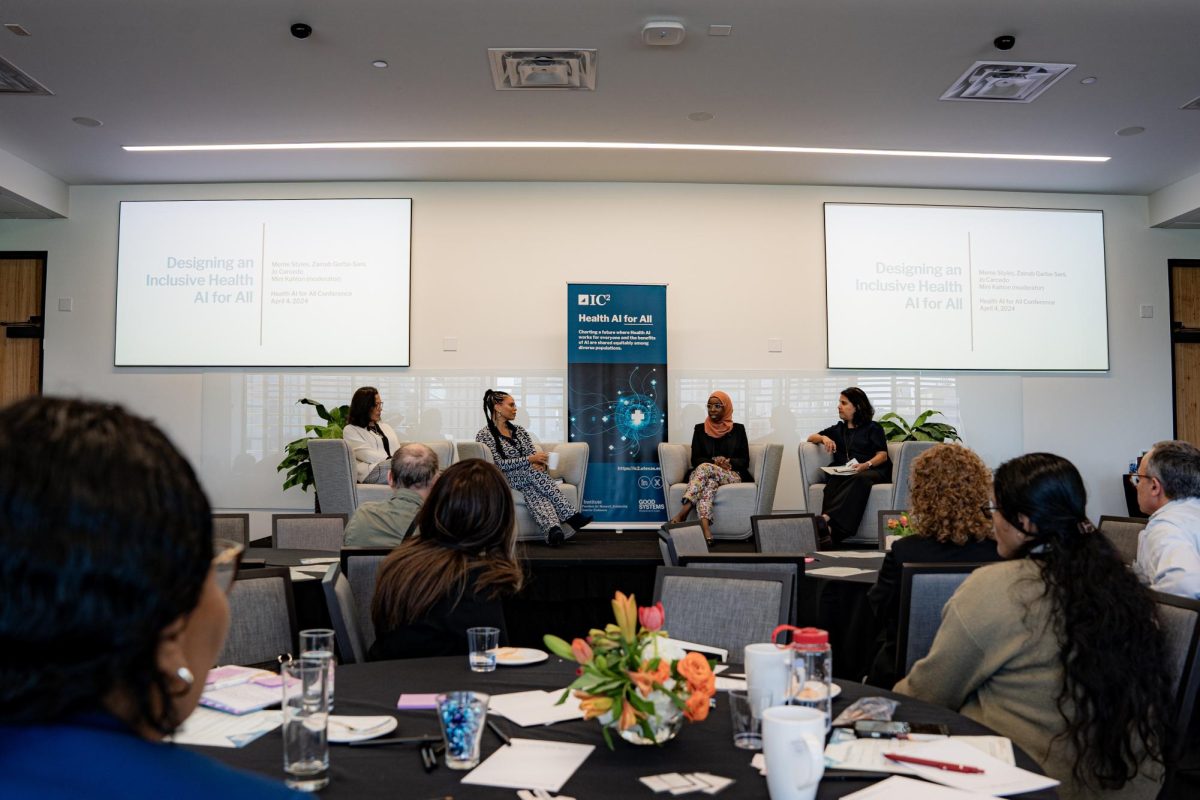The IC² Institute, a hub for interdisciplinary research and economic development at UT, hosted the AI Health for All conference on April 4 to discuss the implications of incorporating AI into healthcare.
The conference gathered researchers, health professionals and community leaders. It also featured a panel called “Designing an Inclusive Health AI for All” which explored the barriers to AI that underserved communities may face.
“If we, together, can understand the problems and the barriers, then together, we can then start doing something about it and actually helping make sure that AI is integrated in a way that really advances health equity,” said Zainab Garba-Sani, one of the panelists at the event.
Garba-Sani is a Stanford researcher who specializes in health AI policy and implementation in the United Kingdom. During the panel, Garba-Sani said her research explores the way certain demographic populations perceive AI.
“I’m leading an international interdisciplinary initiative that really tries to make sure that AI is implemented in a community-centered way, so no one’s left behind,” Garba-Sani said. “Actually, you really understand the hopes and fears of our most underserved communities when it comes to AI.”
Garba-Sani said her research sheds light on why people from certain ethnic backgrounds perceive AI more negatively. Garba-Sani said representation in health data sets may be impacted because they don’t take into account the hesitation underserved communities have towards AI. This discrepancy in data may mean underserved communities do not get full access to the benefits of AI in healthcare.
“The most underserved and underprivileged get even worse health outcomes because of bias and the fact that they are underrepresented in the data set,” Garba-Sani said. “Therefore, we’re actually perpetuating all these disparities.”
Jo Carcedo, former philanthropy leader for the Episcopal Health Foundation, said AI presents an opportunity for researchers to be intentional about who is included in data sets used in healthcare research. This helps to ensure different communities are being represented, Carcedo said.
“If we aren’t careful, we’re repeating narratives that are not beneficial to the work that we’re trying to achieve,” Carcedo said. “We have a story to tell that is reflective of the people that we really want to see participate in this.”
Meme Styles is the founder and president of Measure, a research and data activism organization based in Texas, and serves as the vice president of responsible and ethical AI with the Austin AI Alliance. Styles said her organization joins community members to provide information about AI as a health tool for underrepresented communities.
“We are sharing with our community ways to lean in,” Styles said. “The thing is, if we don’t lean in now, it’s going to be designed without us.”














